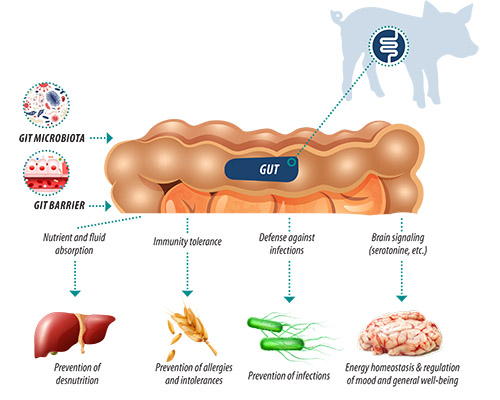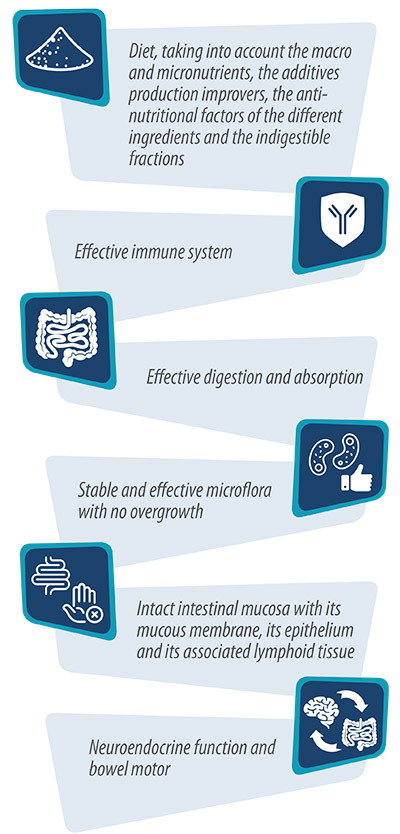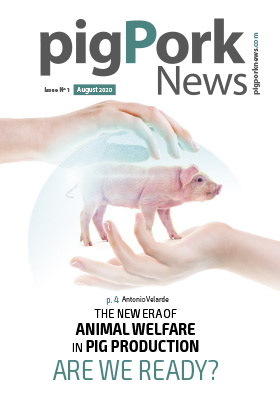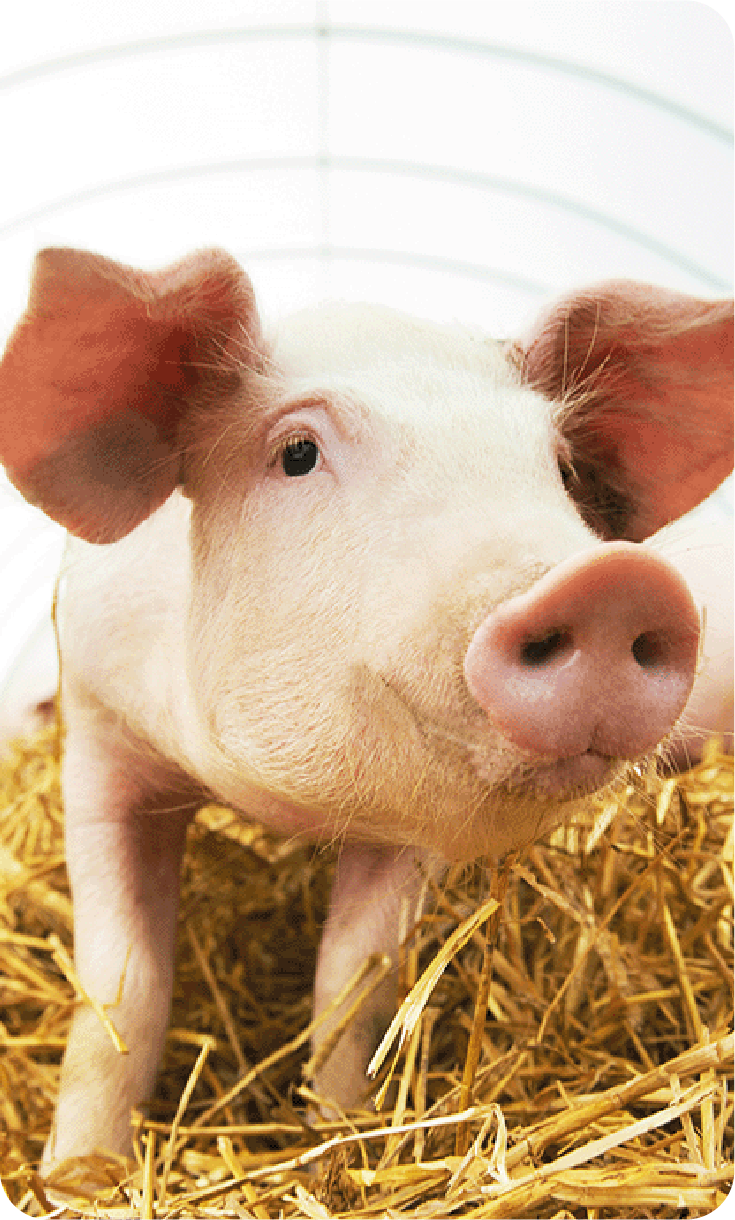WHAT IS GUT HEALTH?
Enhancing the intestinal health of pigs has become a priority for the porcine sector, since it allows to improve their production performance, minimizing production costs and achieving the highest possible level of Animal Welfare that is accepted by society.
Over the past few years there has been an increase in the number of studies and references to what we call “Gut Health“.
The definition of Gut Health will depend on who we ask and what circumstance or factor we refer to:
If we want to think that the best intestinal health is the one we find in nature, in wild animals, this will depend on the moment we choose to determine it. For example, we can evaluate it in a moment of abundant food, as it is the case of autumn season for the Iberian pigs, or during the cold winter with snow and few resources in the Arctic tundra for the few wild boars that live there at that time.
If we ask veterinarians, they will most likely refer to “the absence of digestive pathologies that hinder the development of the animal in question“, in this case, the piglet.
If we ask nutritionists, they will answer that intestinal health will be that state of the animal in which the digestive functions are developed with total normality. But we have to define what is normal.
The scientists will reply that they do not yet know, that more research and testing is needed.
As animal production technicians we could use Pietro Celi‘s definition: “A stationary state where the microbiome and the intestinal tract exist in symbiotic equilibrium and where the animal’s welfare and performance are not limited by intestinal dysfunction”.
CRITERIA FOR MEASURING GUT HEALTH
Bischoff proposes 5 criteria to measure gastrointestinal health:






- Effective and normal production of mucus, without bacterial translocations.
- Normal IgA levels.
- Immune tolerance and normal activity of immune cells with absence of hypersensitivity of the mucosa.

IMPACT OF THE INTESTINE ON HEALTH

Figure 1. The impact of the gut on health: the gastrointestinal tract contributes to health by ensuring digestion and absorption of nutrients, and liquids thanks to several mechanisms, such as mucosal induction and systemic tolerance, the presence of defense systems against infections and other pathogens, and signaling from the periphery to the brain.
The function of the intestine is not limited to food processing and subsequent absorption of nutrients and fluids:




Celi establishes that there are 6 components that must be taken into account and studied to define intestinal health. All of them are similar to those considered by Bischoff with the only exception that Celi incorporates the diet that can be more easily manipulated and directed than in human intestinal health.

HOW TO MEASURE GUT HEALTH?
M. Varley, in 2017 (commentary in Pig Progress), defined that for an animal to have good intestinal health there must be a high correlation between general health and intestinal health, which implies that:
Keep up to date with our newsletters
Receive the magazine for free in digital version
REGISTRATION
ACCESS
YOUR ACCOUNT
LOGIN
Lost your password?











